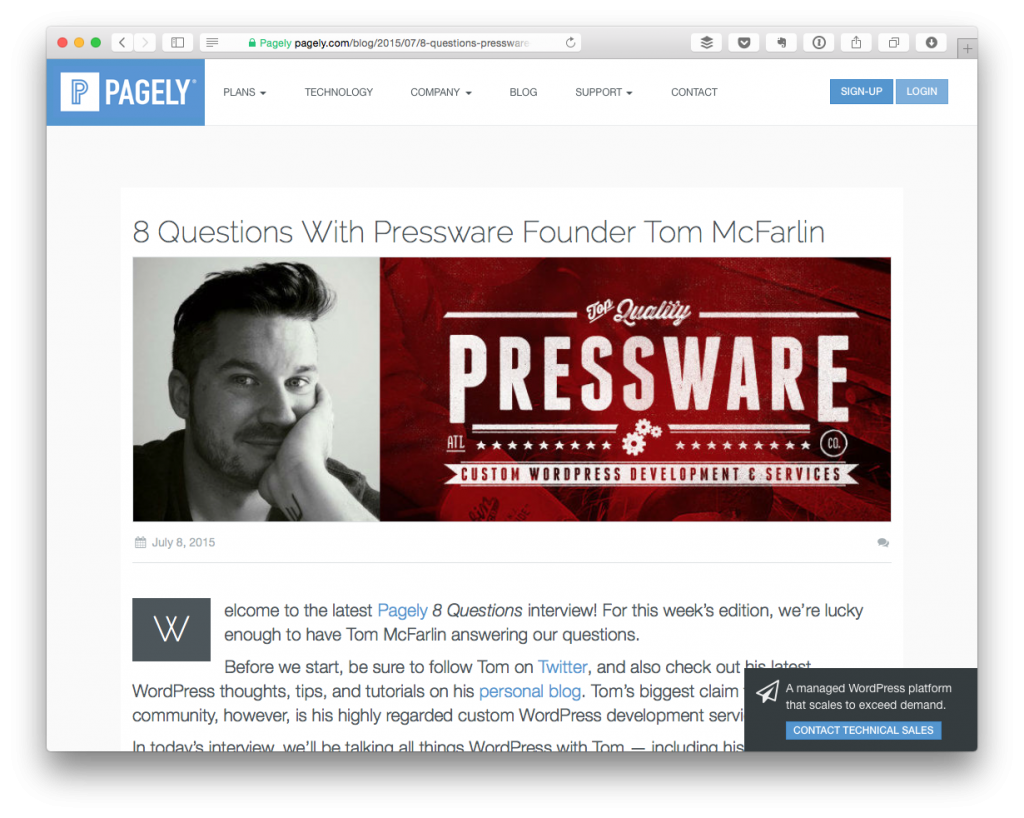Most of the technically-minded folks in WordPress are familiar with Pagely: They provide managed hosting for WordPress-based sites.
In addition to that service, they also publish a blog that highlights a number of different topics – anything from running case studies on WordPress SaaS products to covering the new features they are releasing to their customers.
Over the past few weeks, they’ve been running a series in which they highlight people who are involved in WordPress in some capacity and, as of yesterday, I had the honor to be featured on the blog.
An Interview with Pagely
When others ask to do some type of write-up or interview for their website, it’s always a humbling experience; however, if I have the opportunity to share some of the lessons that I’ve learned during my experience in working with WordPress, then I’m always happy to participate.
I don’t know how interesting or how much weight the following interview will carry for many of you, but I had a blast participating and definitely thank Pagely for the opportunity.

During the course of the interview, I was asked eight questions for which I provided answers based on my experience in working with WordPress over the past several years. The questions were:
- For readers less familiar with you, could you tell us a little about yourself and your WordPress background?
- You’ve been in the WordPress community for several years now, but could you tell us how you first became involved with WordPress?
- During your time in the community, what different areas have you been involved with?
- What has been the best thing about working with WordPress for you?
- How has the WordPress community changed since you started?
- What advice would you give to anyone getting started with WordPress? Which direction would you yourself go if you were starting over again?
- What do you think the biggest mistakes WordPress website owners are making?
- What do you think the future of WordPress holds? What would you like to see?
And then Shaun, the author who was responsible for conducting the interview and drafting the blog post, wrapped up with a few final thoughts.
You can read my answers to the questions on this page. While you’re visiting the site, I also recommend that you check out some of the other recent posts to see what others have to offer as they’ve interviewed people involved in all areas of WordPress and they are definitely a great group of people from which to learn.
If you’ve anything else to ask or add, then please feel free to do so in the comments and I’ll be happy to answer them.


Leave a Reply
You must be logged in to post a comment.